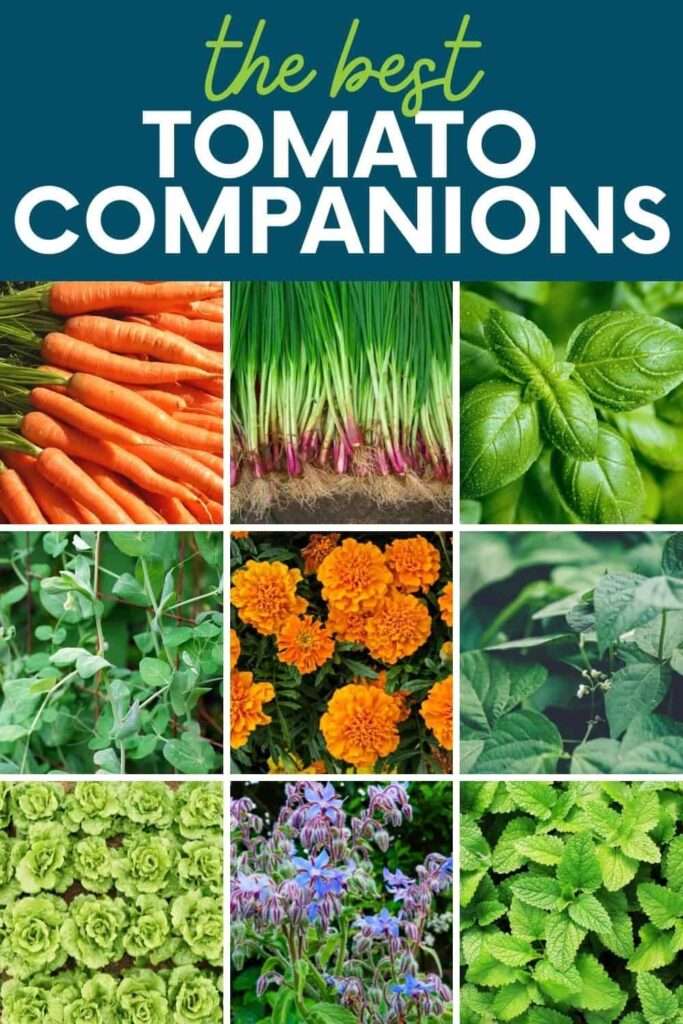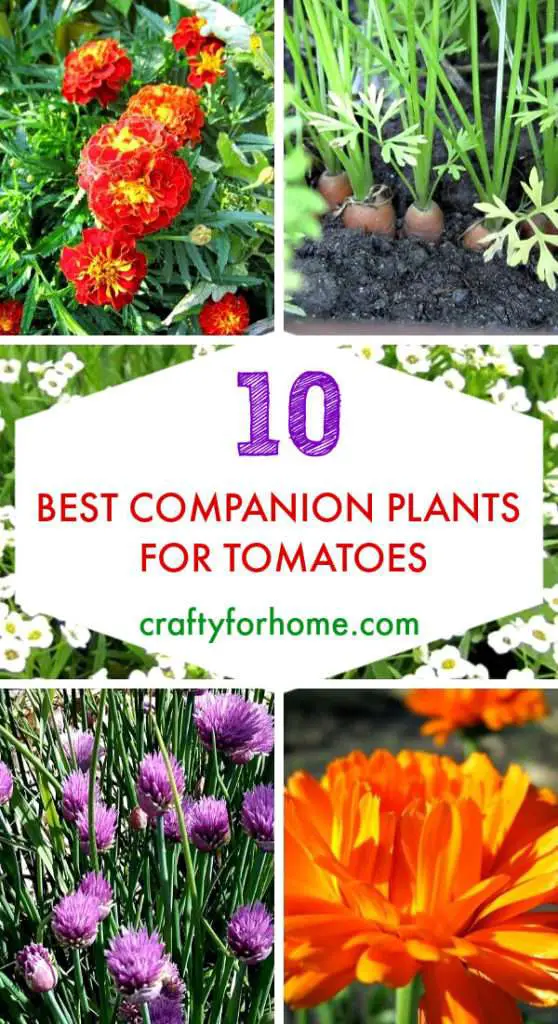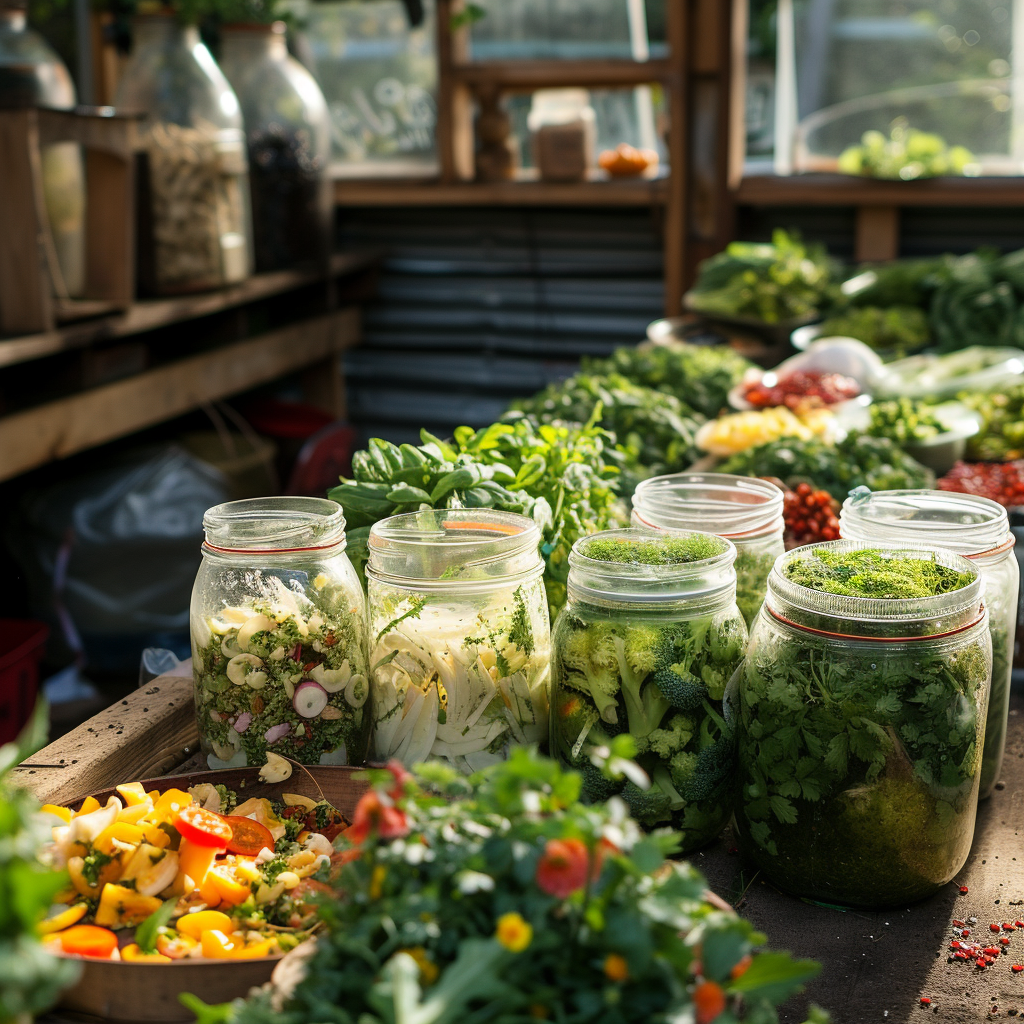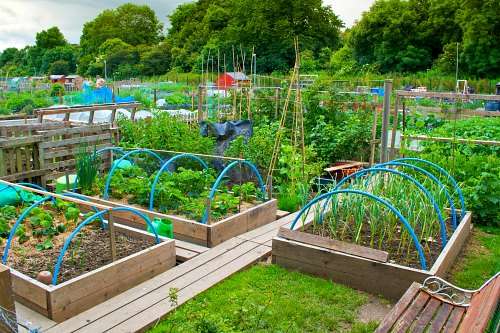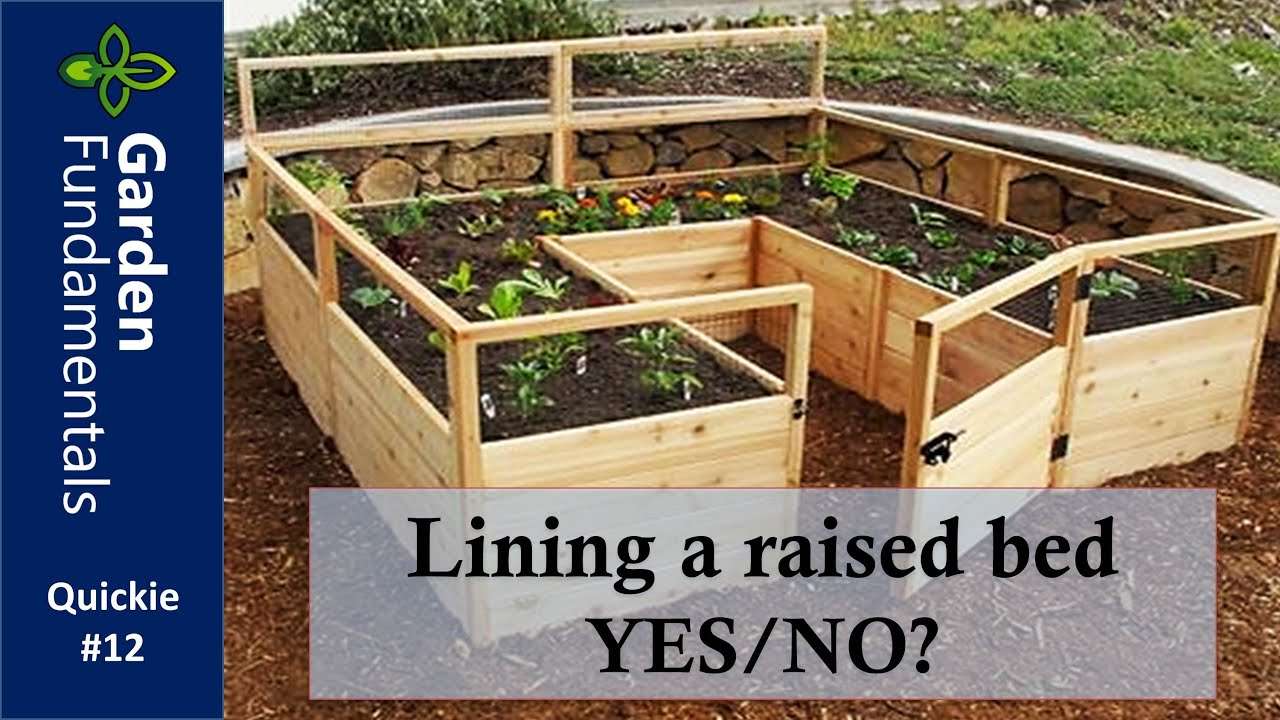In this article, we’ll explore the world of companion plants for tomatoes and discover which ones are a great match, while also learning about those that should not be planted next to our beloved tomatoes. By understanding the concept of companion planting, you’ll gain insights into how certain plants can enhance the growth and health of your tomato plants. So if you’re interested in maximizing your tomato harvest and creating a harmonious garden, keep reading to learn more about the wonderful world of companion plants for tomatoes.
Companion Plants for Tomatoes
If you’re a tomato lover and enjoy growing your own fresh produce, you may already know the importance of companion planting. Companion plants are the ones that have a positive impact on each other when grown together. They improve growth, deter pests, or enhance flavors. In the case of tomatoes, there are several companion plants that can help them thrive. In this article, we will explore the benefits of companion planting for tomatoes and introduce you to some excellent options to consider for your garden.
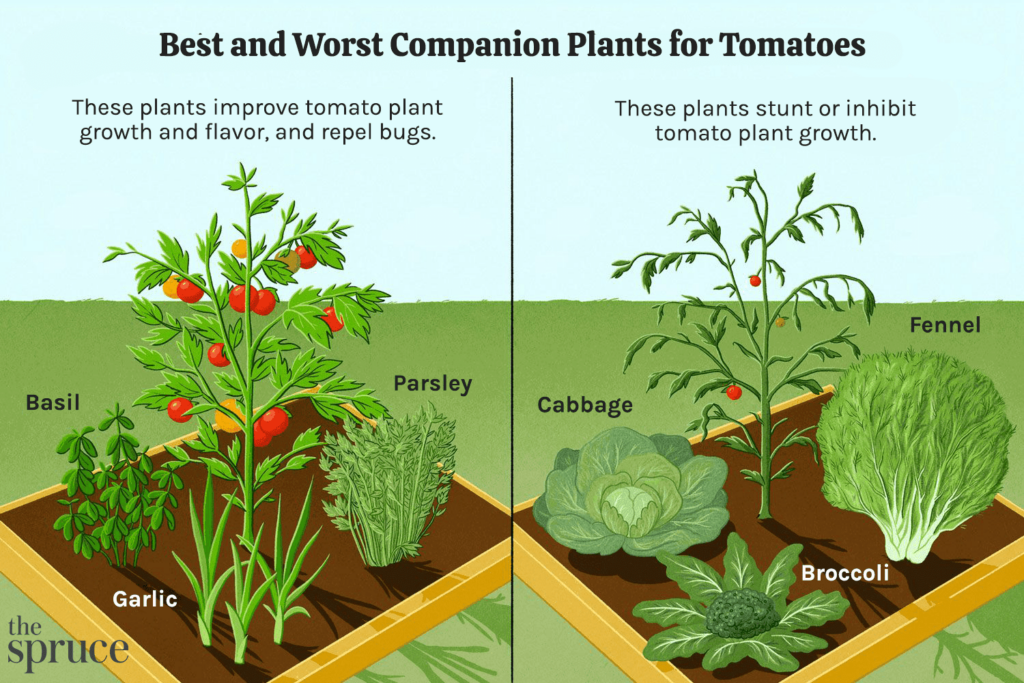
Understanding the Importance of Companion Plants
Companion planting is rooted in the concept of permaculture, where plants are grown in a way that mimics natural ecosystems. When different plants are placed together strategically, they can create a harmonious environment that supports the growth and health of each other. This practice also reduces the need for chemical pesticides and fertilizers.
For tomatoes specifically, companion plants can help deter pests, improve pollination, enhance flavors, and provide shade or support. By choosing the right companions, you can create a more diverse and balanced garden ecosystem, ensuring a higher yield of healthy tomatoes.
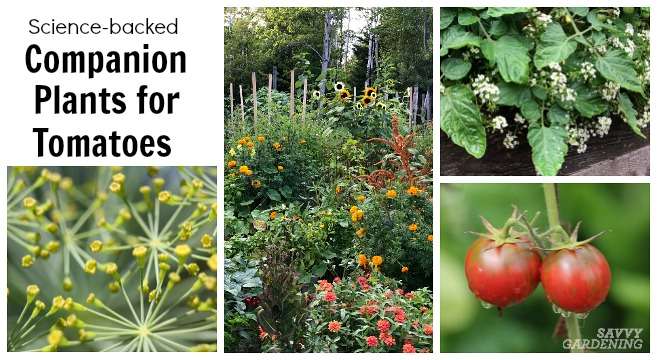
Benefits of Companion Planting for Tomatoes
Companion planting offers a wide range of benefits for tomato plants. Some of the notable advantages include:
1. Basil
Basil is one of the best companion plants for tomatoes. Not only does it enhance the flavor of tomatoes, but it also repels pests such as aphids, mosquitoes, and whiteflies. Planting basil near tomatoes can improve their overall health and increase their yield.
2. Marigolds
Marigolds are known for their strong scent, which deters many common garden pests, including nematodes, aphids, and whiteflies. They also attract beneficial insects like ladybugs and bees, which help pollinate the tomato flowers. Plant marigolds around the perimeter of your tomato patch to protect your plants and promote healthy growth.
3. Nasturtiums
Nasturtiums are excellent companion plants for tomatoes due to their ability to repel aphids, beetles, and squash bugs. These vibrant flowers add beauty to your garden while attracting pollinators. Additionally, nasturtiums act as a natural trap crop, diverting pests away from your tomatoes.
4. Borage
Borage is a fantastic companion plant that attracts bees and other beneficial insects. It improves pollination in tomatoes, leading to a higher fruit set. Borage also repels tomato hornworms and repels aphids, making it a valuable addition to any tomato garden.
5. Chives
Chives are not only a delicious addition to your culinary creations but also a beneficial companion for tomatoes. They deter aphids, mites, and Japanese beetles. The strong scent of chives masks the scent of your tomato plants, making them less attractive to pests. Plant chives around your tomato plants to provide natural protection.
6. Garlic
Garlic is a natural pest repellent and fungicide, making it an ideal companion for tomatoes. It deters aphids, spider mites, and other common pests that can damage your tomato plants. Planting garlic near tomatoes will help keep them healthy and pest-free.
7. Calendula
Calendula, also known as pot marigold, is not only visually appealing but also a beneficial companion plant for tomatoes. It attracts beneficial insects like hoverflies and lacewings, which prey upon aphids and other harmful pests. Calendula also acts as a trap crop, luring pests away from your tomatoes.
8. Parsley
Parsley is a versatile herb that provides many benefits to tomato plants. It improves the flavor of tomatoes, enriches the soil with nitrogen, and repels harmful insects like beetles and aphids. Plant parsley around your tomato plants to enhance their growth and taste.
9. Dill
Dill is a beneficial companion plant for tomatoes, attracting beneficial insects such as wasps and ladybugs that prey upon tomato pests. Additionally, dill improves pollination and adds flavor to tomatoes. Interplant dill with tomatoes to create a beneficial garden ecosystem.
10. Mint
Mint is a fragrant herb that repels pests like aphids and ants. Planting mint near your tomatoes can help deter these pests and keep your plants healthy. However, be cautious as mint has a tendency to spread aggressively, so it’s best grown in containers to prevent it from taking over your garden.
11. Carrots
Carrots make great companions for tomatoes as they release chemicals that repel nematodes, which are common pests that attack tomato roots. Planting carrots near your tomatoes can help protect them from these harmful pests and improve their overall health.
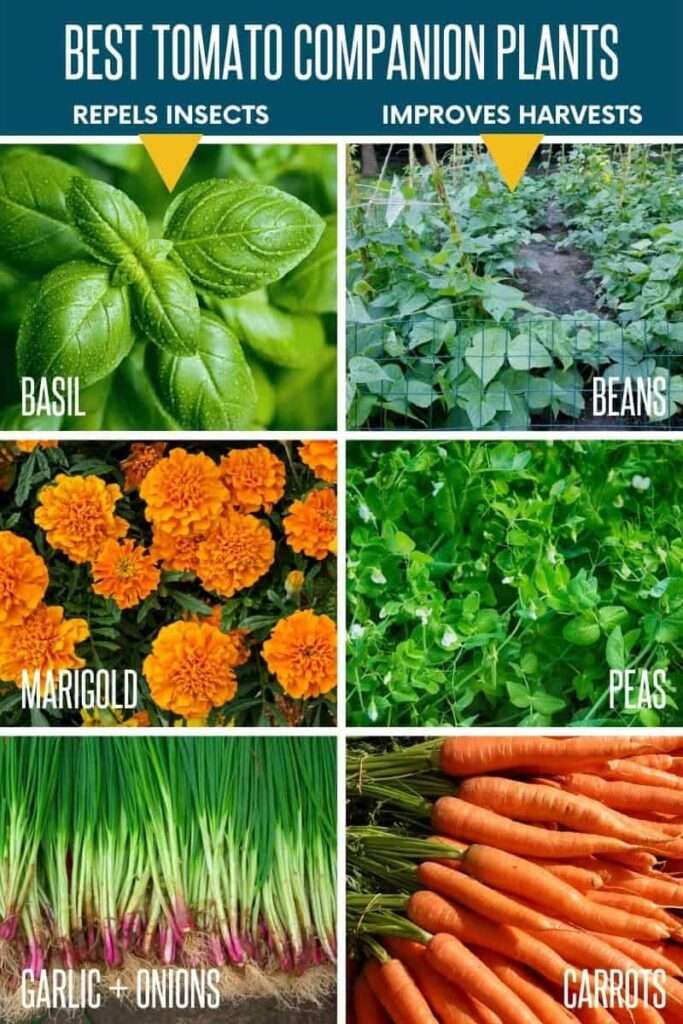
Conclusion
Companion planting is a tried and tested technique that can greatly benefit your tomato plants. By choosing the right companion plants, you can create a thriving garden ecosystem that minimizes pest issues, improves pollination, and enhances the flavor and yield of your tomatoes. Experiment with different combinations of companion plants to find the ones that work best for your specific garden conditions.
Remember to avoid planting tomatoes near plants such as corn, potatoes, fennel, and kohlrabi, as these can negatively impact the growth and health of your tomato plants. With a little planning and care, you can maximize the potential of your tomato plants and enjoy a bountiful harvest year after year. Happy gardening!
